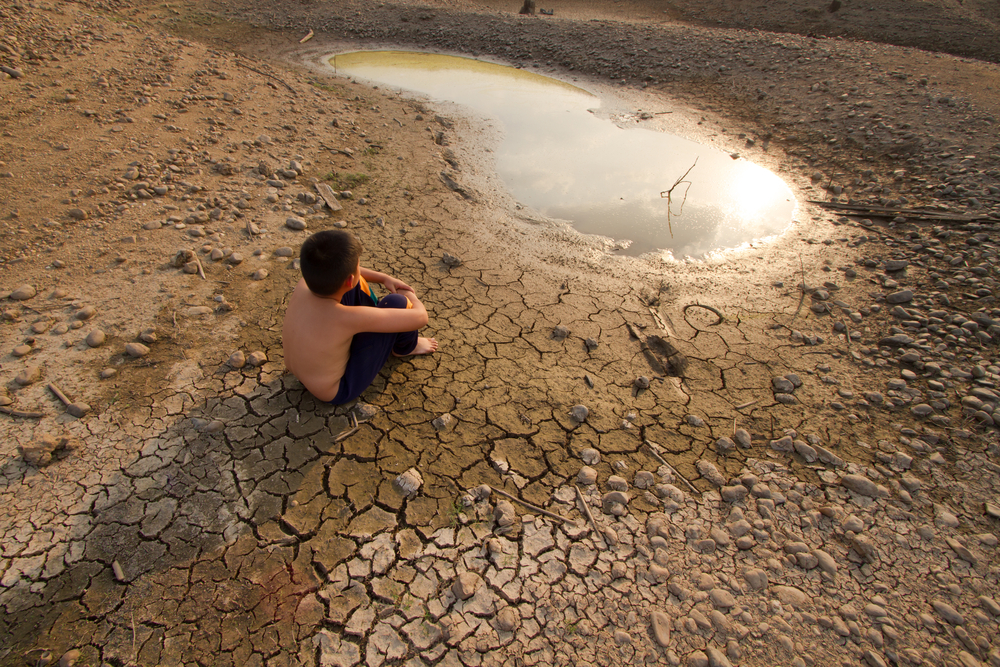What is degrowth and how does it contribute to achieve climate goals?
During the international climate summit in Glasgow, world leaders came together to negotiate how we keep global warming below 1.5 degrees Celsius. Much of the negotiations are about which techniques we want to finance to use fossil fuels and materials more efficiently. And also about how we can generate energy more sustainably and do business in a more circular way. However, the possibility of simply producing and consuming less will not be a hot item. The world is simply part of an economic and cultural system in which growth is self-evident. Yet degrowth, or post-growth, is a theme that is increasingly discussed in the scientific community and media. What exactly is degrowth and how does it contribute to achieve climate goals?
International Climate Action
In recent years, various global initiatives have emerged to stop global warming. Think of the Paris climate summit. Or the 17 sustainable development goals set by the United Nations and promoted by countries and businesses. There is the World Business Council for Sustainable Development where more than 200 large international companies work to achieve ecological goals. Or the Carbon Pricing Leadership Coalition in which countries, companies and scientists work together to effectively price greenhouse gas emissions.
The results so far

There clearly is felt an international urgency to put possible measures against further climate change on the agenda. However, reality shows that, according to the International Energy Agency, we can expect the second largest growth in emissions of the greenhouse gas CO2 in 2021. The International Biodiversity Platform (IPBES) also warns that 25% of plant and animal species are threatened with extinction. This will have major consequences for the liveability of humans on earth. It therefore seems that, although we know it is not sustainable, we live in an economic and cultural system that pulls us back into a ‘we have to grow’ idea every time again. And more growth simply means more energy and materials consumption. So what are the alternatives?
Economic alternatives for growth
Green growth
Green growth should mean that economic growth is decoupled from greenhouse gas emissions. For example, the European Union has introduced a package of measures to support green growth. New techniques, such as the storage of CO2 emissions caused by industry in empty gas fields, could contribute to this, for example. However, these techniques are still questionable in their results, while we actually don’t have the time to experiment with them. Research also shows that there is as yet no evidence of a decoupling of greenhouse gas emissions from economic growth. To illustrate: in 2020, of the 11 trillion dollars invested worldwide to get out of the Corona crisis, 1% was used for green growth.
Circular economy
In a circular economy, an attempt is made to conserve and reuse as much as possible of the materials used in products. That starts with producing products that are of high-quality and consist of various easy-to-repair components. And the material of which it is made is then easy to reuse or recycle. The European Union expects its economy to be 25% circular by 2030. In 2019, 12% of all materials were recycled. These are good figures, and the ideas of the circular economy must above all continue to be supported. But 25% circularity in 2030 is not enough to achieve the climate goals. Circular experts are therefore arguing for a different kind of economic system that, in addition to that circularity, guarantees that the economy is kept within ecological limits.
What is degrowth?
Degrowth is a planned reduction of excessive energy and material consumption. And that in such a way that it brings the economy back into balance with the ecological capacity of the earth in a safe and just manner. The total production and consumption of goods and services then decreases. There is no longer any growth in an economic sense, but there is growth in an ecological and social sense. Society is being organized in such a way that everyone on earth can live with basic facilities (shelter, food, education, care) while staying within ecological limits. Such a way of life will at least take some time getting used to, because all systems, but also our expectations, are designed for growth. In addition to an economic change, degrowth will then also require a change in cultural views.
Practical tips for a degrowth society

Several practical tips are available to make degrowth possible. Think of shortening working hours, introduce a basic income, tax environmental damage instead of taxing labour, stop subsidizing polluting activities, stop advertising for products that harm people and nature and support non-profit cooperatives that, for example, provide citizens with care, sustainable energy or healthy food.
Or even more concretely: significant promotion of public transport and car-sharing, include the actual environmental costs in the price of a plane ticket, mandatorily extend the warranty period on products and make it easier to repair them, promote second-hand products, produce more for the local market so that less freight traffic is needed, significantly reduce food waste and the consumption of meat, promote plant-based foods, reduce energy consumption in buildings and refurbish old buildings sustainably for new use, increase property taxes and increase it even more for people with more than 1 house in possession.
In themselves, these tips are not new and have been promoted for some time to make society more sustainable. What is new is that, if implemented correctly, it will lead to economic degrowth because less material and energy is needed to run society. By accepting this shrinkage and assuming a society that thrives on solidarity, well-being and a fair distribution of the burden (per country, but also between continents), we will be able to get closer to achieving the Paris climate goals.
Author: Rob van der Rijt, the Netherlands. Thanks to experts from Breda University of Applied Sciences, Avans Hogeschool and Utrecht University.

